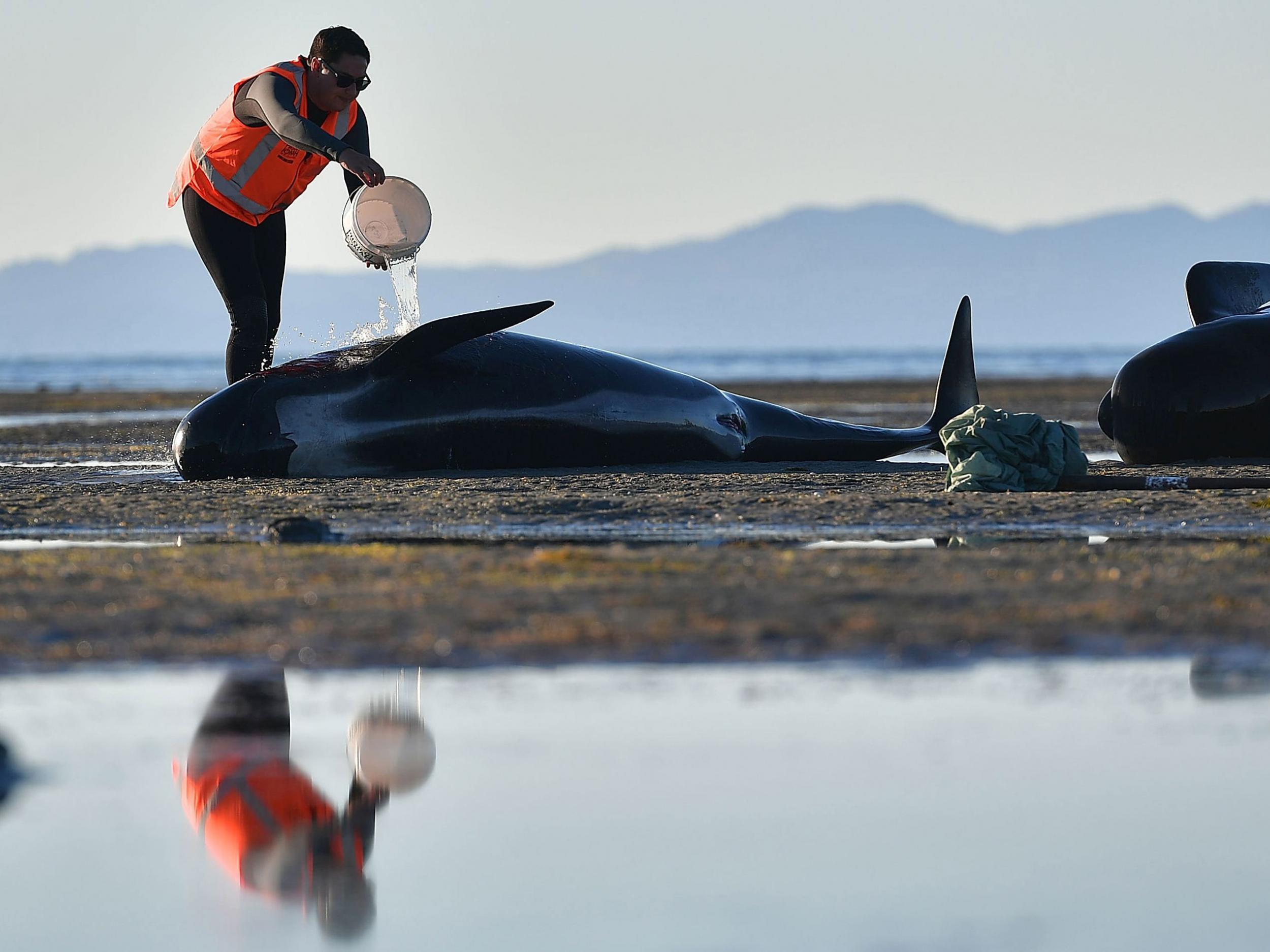Hundreds of whales stranded on New Zealand beach refloat and return to sea
Officials are now deciding how to dispose of the dead animals left on the beach

Your support helps us to tell the story
From reproductive rights to climate change to Big Tech, The Independent is on the ground when the story is developing. Whether it's investigating the financials of Elon Musk's pro-Trump PAC or producing our latest documentary, 'The A Word', which shines a light on the American women fighting for reproductive rights, we know how important it is to parse out the facts from the messaging.
At such a critical moment in US history, we need reporters on the ground. Your donation allows us to keep sending journalists to speak to both sides of the story.
The Independent is trusted by Americans across the entire political spectrum. And unlike many other quality news outlets, we choose not to lock Americans out of our reporting and analysis with paywalls. We believe quality journalism should be available to everyone, paid for by those who can afford it.
Your support makes all the difference.More than 300 whales have escaped from a beach in New Zealand after becoming trapped on a shallow peninsula.
Two separate incidents at Farewell Spit, South Island, led to around 650 whales becoming stranded over the last few days.
The first, on 9 February, was the largest whale stranding on the mainland in New Zealand’s history, with around 400 whales becoming trapped.
Hundreds of volunteers flocked to the beach, helping to keep the whales cool and attempting to refloat them – succeeding in about 100 cases.
Another 200 whales which became stranded yesterday were able to refloat themselves overnight without the help of volunteers.
However, around 350 whales have died. Twenty were euthanized.
Volunteers are now cautiously optimistic the spate of strandings is over.
The Department of Conservation is now turning its attention to the disposal of the dead whales.
The beach has been closed off for fear of the decomposing animals blowing up.
“These things explode from the stomach and if you're standing right there it's not very nice getting a 'gut bomb' on your face," Department of Conservation operations manager Mike Ogle told Stuff.
Wildlife officials will use a variety of methods to dispose of the marine animals, including leaving some in sand dunes and others in the water.
The cause of the mass strandings will also be investigated.
"By taking biopsy samples and doing analyses, we're potentially able to isolate the reason for this,” DOC spokesman Herb Christophers told Radio NZ. “It could be as simple as interference with their navigation systems, but that's theoretical.”
He added: "It is thought that because of the nature of this whole Farewell Spit being a very shallow sand spit that it does cause echo-location problems for the whales in finding their way out of that area."
Join our commenting forum
Join thought-provoking conversations, follow other Independent readers and see their replies
Comments